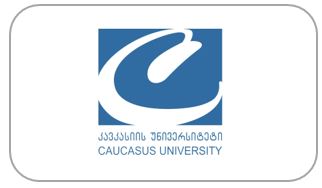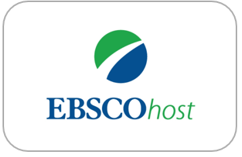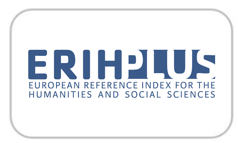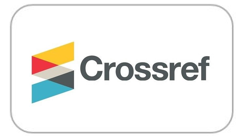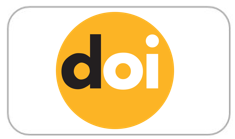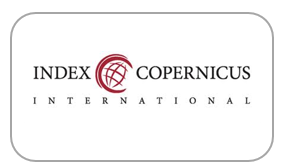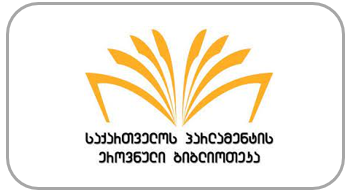მედიკამენტების ფალსიფიცირება როგორც გლობალური ჯანდაცვის პრობლემა
DOI:
https://doi.org/10.52340/healthecosoc.2024.08.02.10საკვანძო სიტყვები:
საზოგადოებრივი ჯანმრთელობა, ფარმაცევტული კომპანიები, მედიკამენტების გაყალბება, გლობალური ჯანმრთელობაანოტაცია
შესავალი: მედიკამენტების გაყალბება და ფალსიფიკაცია გლობალური ჯანმრთელობის ერთ-ერთი უმნიშვნელოვანესი გამოწვევაა, რომელიც საფრთხეს უქმნის პაციენტების სიცოცხლეს, ხელს უშლის ჯანდაცვის სისტემების მდგრადობას და ქმნის საზოგადოებრივი ჯანმრთელობისთვის სერიოზულ რისკებს. აღნიშნული კვლევა მიზნად ისახავს ყალბი და ფალსიფიცირებული მედიკამენტების გლობალური გავრცელების მასშტაბების, მათი გამომწვევი მიზეზებისა და შედეგების სიღრმისეულ ანალიზს. მეთოდოლოგია: დამუშავდა და გაანალიზდა შესაბამისი ლიტერატურიდან მოძიებული თეორიული მასალა. შედეგები: კვლევის შედეგები ხაზს უსვამს ფალსიფიცირებული მედიკამენტების უარყოფით გავლენას საზოგადოებრივი ჯანმრთელობისა და ეკონომიკის სფეროებზე, რაც გამოიხატება წამლების მიმართ რეზისტენტობის განვითარებით, მკურნალობის წარუმატებლობით და პაციენტთა ნდობის დაკარგვით ჯანდაცვის სისტემების მიმართ. ნაშრომი აჩვენებს პრევენციისა და გამოვლენის ეფექტიანი სტრატეგიების, მათ შორის ტექნოლოგიური ინოვაციებისა და მარეგულირებელი ღონისძიებების დანერგვის, საზოგადოების ცნობიერების ამაღლების და საერთაშორისო თანამშრომლობის გაძლიერების მნიშვნელობას. კვლევა ხაზს უსვამს კოორდინირებული ძალისხმევის აუცილებლობას, რომელშიც ჩართული იქნება საერთაშორისო ორგანიზაციები, მთავრობები და კერძო სექტორი, რათა შემცირდეს ფალსიფიცირებული მედიკამენტების გავრცელება და უზრუნველყოფილი იქნას პაციენტების უსაფრთხოება. დასკვნა: სანდო გლობალური ფარმაცევტული მიწოდების ჯაჭვის ჩამოყალიბების საფუძველია ტექნოლოგიების უწყვეტი განვითარება, გაძლიერებული მარეგულირებელი ჩარჩოები, საზოგადოების ინფორმირებულობის გაზრდა და მყარი საერთაშორისო თანამშრომლობა. ამ მიზნის მიღწევა მოითხოვს ყველა დაინტერესებული მხარის — მთავრობების, საერთაშორისო ორგანიზაციების, ფარმაცევტული კომპანიების, ჯანდაცვის პროფესიონალებისა და მომხმარებლების — კოორდინირებულ და ერთიან ძალისხმევას.
წყაროები
• African Medicines Regulatory Harmonization. (2021). Overview of AMRH Initiative. Retrieved from https://www.nepad.org/agency/african-medicines-regulatory-harmonization-amrh
• Andrew J, Deva Priya Isravel, K. Martin Sagayam, Bharat Bhushan, Yuichi Sei, Jennifer Eunice (2023). Blockchain for healthcare systems: Architecture, security challenges, trends and future directions. *Journal of Network and Computer Applications*, 215. https://doi.org/10.1016/j.jnca.2023.103633
• Balfour, H. (2022). The latest on pharmaceutical counterfeiting. (2022, June 27). *European Pharmaceutical Review*. Retrieved from https://www.europeanpharmaceuticalreview.com/article/170913/the-latest-on-pharmaceutical-counterfeiting/?form=MG0AV3
• Baldini, G., Fovino, I., Satta, R., Tsois, A., & Checchi, E. (2015). Survey of techniques for the fight against counterfeit goods and Intellectual Property Rights (IPR) infringement 2015 EUR 27688 EN. https://doi.org/10.2788/97231
• Bate, R., Jin, G. Z., & Mathur, A. (2019). Falsified or substandard? Assessing price and non-price signals of drug quality. *Journal of Health Economics*, 67, 102224. Retrieved from https://www.sciencedirect.com/science/article/pii/S016762961830692X
• Blackstone, E. A., Fuhr, J. P., Jr, & Pociask, S. (2014). The health and economic effects of counterfeit drugs. *American Health & Drug Benefits*, 7(4), 216–224.
• El-Dahiyat, F., Fahelelbom, K. M. S., Jairoun, A. A., & Al-Hemyari, S. S. (2021). Combatting Substandard and Falsified Medicines: Public Awareness and Identification of Counterfeit Medications. *Frontiers in Public Health*, 9. https://doi.org/10.3389/fpubh.2021.754279
• European Medicines Agency (2016) Falsified medicines: Overview. European Medicines Agency. Retrieved from https://www.ema.europa.eu/en/human-regulatory-overview/public-health-threats/falsified-medicines-overview#:~:text=Falsified%20medicines%20are%20fake%20medicines%20that%20are%20designed%20to%20mimic,or%20that%20infringe%20trademark%20law
• Global Surveillance and Monitoring System for substandard and falsified medical products. (2024). World Health Organization. Retrieved from https://www.who.int/publications/i/item/9789240097513
• Karunamoorthi, K. (2014). The counterfeit anti-malarial is a crime against humanity: a systematic review of the scientific evidence. *Malaria Journal*, 13, 209. https://doi.org/10.1186/1475-2875-13-209
• Khurelbat, D., Dorj, G., Sunderland, B., Sanjjav, T., Bayarsaikhan, E., Damdinjav, D., Dorj, G., Jigjidsuren, A., Lkhagvasuren, O., & Erdenetsetseg, B. (2020). A cross-sectional analysis of falsified, counterfeit and substandard medicines in a low-middle income country. *BMC Public Health*, 20(1), 743. https://doi.org/10.1186/s12889-020-08897-x
• Knox, R. (2012). FDA Warns About Fake Avastin In U.S. *NPR*. Retrieved from https://www.npr.org/sections/health-shots/2012/02/15/146929475/fda-warns-about-fake-avastin-in-us
• Kovacs, S., Hawes, S. E., Maley, S. N., Mosites, E., Wong, L., & Stergachis, A. (2014). Technologies for detecting falsified and substandard drugs in low and middle-income countries. *PloS One*, 9(3), e90601. https://doi.org/10.1371/journal.pone.0090601
• Liu, H., Zhang, Z., & Linhardt, R. J. (2009). Lessons learned from the contamination of heparin. *Natural Product Reports*, 26(3), 313–321. https://doi.org/10.1039/b819896a
• Mackey, T. K., & Liang, B. A. (2011). The global counterfeit drug trade: patient safety and public health risks. *Journal of Pharmaceutical Sciences*, 100(11), 4571–4579. https://doi.org/10.1002/jps.22679
• Ofori-Parku, S. S. (2022). Fighting the global counterfeit medicines challenge: A consumer-facing communication strategy in the US is an imperative. *Journal of Global Health*, 12, 03018. https://doi.org/10.7189/jogh.12.03018
• Pathak, R., Gaur, V., Sankrityayan, H., & Gogtay, J. (2023). Tackling Counterfeit Drugs: The Challenges and Possibilities. *Pharmaceutical Medicine*, 37(4), 281–290. https://doi.org/10.1007/s40290-023-00468-w
• Sallam, K., Mohamed, M., & Wagdy, A. (2023). Internet of Things (IoT) in Supply Chain Management: Challenges, Opportunities, and Best Practices. *Sustainable Machine Intelligence Journal*, 2. https://doi.org/10.61185/SMIJ.2023.22103
• Sweileh, W. M. (2021). Substandard and falsified medical products: bibliometric analysis and mapping of scientific research. *Global Health*, 17, 114. https://doi.org/10.1186/s12992-021-00766-5


